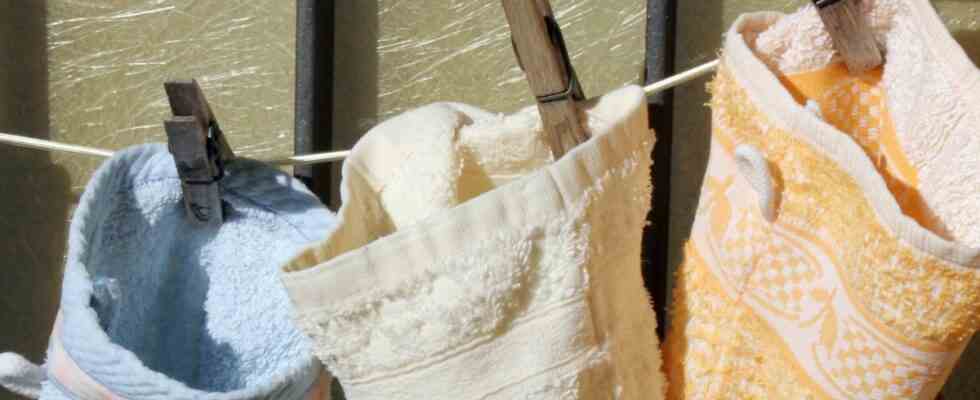It’s often said that the best ideas come to you in the shower, and if there’s any truth to it, you might have to start worrying about the country in view of the rising energy prices. Now that those in government who are determined to be a role model for the people are apparently spending hardly any time in the shower: First Federal Economics Minister Robert Habeck announced that he had “cut his shower times significantly again”, then reported the Berlin Senator for the Environment, Bettina Jarasch, she is content with a cat wash in the morning – allegedly her family delivers a real quick shower challenge.
The story of the showers and the ideas took another turn when Baden-Württemberg’s prime minister Winfried Kretschmann the debate on SWR to the next level. He thought it was sometimes possible to do without a shower altogether. “Even the washcloth is a useful invention!”
FYI, washcloths are those pieces of cloth that were used with soap before disposable wipes and body wash were invented. Internet searches (“What do you do with a washcloth?”) prove: There are actually people who don’t know what to do with the thing at all. At the same time, the washcloth seems to be so characteristic and representative of our cultural area that foreign influencers on a visit to Germany are happy to hold the cloth glove, which they apparently find very strange, in the camera for their followers. And for refugees, too, the washcloth in the care package is often the first piece of welcoming culture.
relic of another time
The discovery of the absorbent looped fabric from which the utensil is made used to be a small sensation: imported from the Near East in 1850 as a sample of fabric by an Englishman named Henry Christy, the material could first be produced mechanically in the Fairfield works in Droylsden. We are talking about the so-called terry cloth, which in French (fritter) means “to rub off”. It goes without saying that Kretschmann received applause from the textile industry, but received a beating from most of the others. That’s how he mocked Bavarian Economics Minister Hubert Aiwanger on Twitter: “Putin can keep his gas. We have #flannels”. Another user asked for old washcloths to be put in an envelope and sent to the prime minister’s home address.
It’s true, the washcloth itself isn’t particularly sexy. It starts with the word “floppy” getting tangled up in the middle, good stuff for jokes. A boy sits in the tub and asks, “Mom, where’s the washcloth?” Answer: “Just get some cigarettes!” Wimps and wimps, that’s what the washcloth stands for, for people without edge who can’t, don’t want to, dare. So Despondent That Actor Clint Eastwood 2016 in an interview with the esquire threatened that he would vote for Donald Trump simply because today’s generation is full of wimps.
Today, since most people take a long shower every day, it is more of a relic of a time when the bathing stove was lit on Saturdays in order to clean the whole family with a bath filling in a fixed order – first the children, then mum and finally dad. A crumpled thing that works neither dry nor wet, so you have to wring its neck with both hands before using it.
Every drop counts
If the washcloth is to become the status symbol of a generation of water savers, then it first needs a new image – and prominent brand ambassadors. Actors Ashton Kutcher and Mila Kunis, for example, are known to not wash their children “until you can see the dirt on them” and limit their morning routine to essential parts of the body. “I wash my armpits and crotch every day and nothing else,” Kutcher revealed a year ago in the podcast “Armchair Expert“, which triggered a veritable social debate in the USA at the time. Now, a year later, the two are suddenly very trendy.
If silver-agers, Lohas and all the other health-conscious lifestyle optimizers bite, then the cloth as an ecologically-politically-correct accessory will soon be at least on a par with the vegan bowl in terms of image, for sure. If not even with the cargo bike. And the statement “You may be a wimp!” will only be answered in a friendly way: “Thank you, how nice – but you too!”

